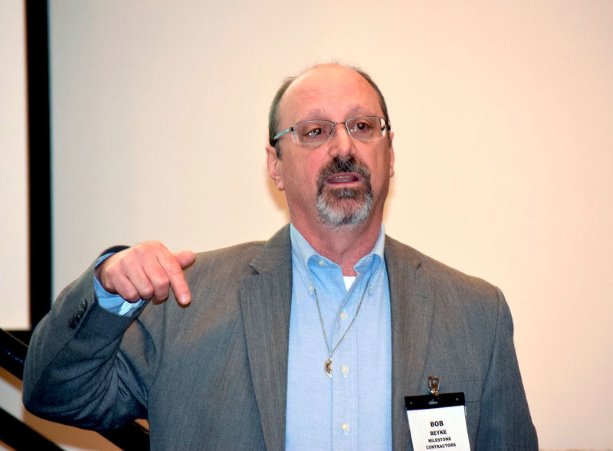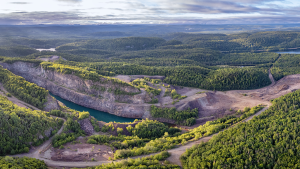The Ontario Asphalt Pavement Council (OAPC) turned to a southern neighbour for a refresher course on how to maintain strong community relations and avoid conflicts at its recent spring operations seminar.
Robert Beyke, manager of environmental affairs with Milestone Contractors in Indianapolis, told delegates at the recent Toronto conference the tone of community protest against projects such as new asphalt plants had escalated from NIMBY (Not In My Back Yard) to BANANA (Build Absolutely Nothing Anywhere Near Anybody).
Community protests against new asphalt projects don’t have a high national profile but all it takes is googling "asphalt plant protest Canada" to learn they happen at the grassroots level, said Beyke. And so the industry needs to adopt strategies to, first, proactively ensure new and existing plants are good neighbours within their communities and second, to ensure rearguard opposition does not threaten the livelihoods of stakeholders in the sector.
Environmental activism is gaining ground in the U.S. as activists become better organized and more aware of issues, Beyke said.
"They want smooth new roads but they do not want the facilities that create those roads," he said, referring to protests he had documented in the U.S. and Canada.
Canadian protests of the past included opposition to projects in Whistler, B.C. and Plantagenet, Ont. while just weeks ago, Alberta’s Tollestrup Construction withdrew a rezoning application for an asphalt plant in Lethbridge County, Alta. after residents had complained of potential odour and property value impacts.
Robert Beyke
Milestone Contractors
Proactive steps advocated by Beyke include initiating community awareness programs such as making outreach a company philosophy, hosting open houses and going beyond the minimum requirements of environmental regulations.
"You need to fill the information vacuum," said Beyke. "If you don’t, community groups will and a lot of that information will be false."
Open houses bring in neighbours who are shown what the plant does, he said. The community will soon learn it’s a simple operation — you are heating aggregate and driving out the moisture, Beyke told the pavers.
"Taking them on a factory tour can do wonders," he said. "There is really not a lot going on there."
Establishing a corporate culture of community outreach can mean creating a mission statement and evaluation programs, Beyke said. It can involve allotting company resources such as people, equipment or money to community programs or it can be something as simple as supervisors ensuring workers on a jobsite remove their helmets and bow their heads when a funeral procession drives by.
Beyke told how one firm received an email from a member of the bereaved family showing appreciation for the simple gesture of respect.
"That’s how you know you are creating the right culture," he said.
The latter part of Beyke’s seminar offered advice on the reactive side.
"You can plan but that doesn’t mean you won’t have battles," he said. "War will break out."
When the heat is on, Beyke said, plant owners should quickly determine the nature of the issue causing problems, listen to protesters without dismissing them, act reasonably and calmly and be willing to address the issue directly. Often there can be misinformation or exaggerations — for example, complaints that emissions are carcinogens. Beyke said in that case, handouts could be prepared pointing out the carcinogenic threat is equal to drinking coffee or using a cellphone.
OAPC executive director Vince Aurilio explained he was so impressed at Beyke’s ability to rally delegates at a recent World of Asphalt event he invited him north of the border.
"There is some common stuff, it’s be proactive, talk to your neighbours, because a plant has to exist in that neighbourhood," Aurilio said, when asked about corporate planning to deal with Canadian and American activism. The American perspective was instructive, he said, but Ontario has had protocols in place for some time to ensure community concerns are dealt with.
"Typically we don’t have those problems on similar issues here," said Aurilio. "It’s because we’ve been proactive, and we have our best practices guide, and we are constantly working with the MOE (Ministry of Environment) in that regard.
"A lot of the good things that Bob said really help to alleviate those problems going forward."
The Environmental Practices Guide referred to by Aurilio offers extensive direction to plant operators on following environmental regulations and also contains information on dealing with community concerns.
The OAPC’s Trillium Awards program also incorporates best practices urging paving firms to act as environmentally progressive corporate citizens, said Aurilio.
The OAPC is a council of the Ontario Road Builders’ Association.











Recent Comments
comments for this post are closed